|
Year 2023 – Vol. 35 – N.1   Basic sciences: |
|
Year 2023 – Vol. 35 – N.1   Basic sciences: |
|
EDITORIAL A new format for a new era
|
|
|
|
SPECIAL FEATURE 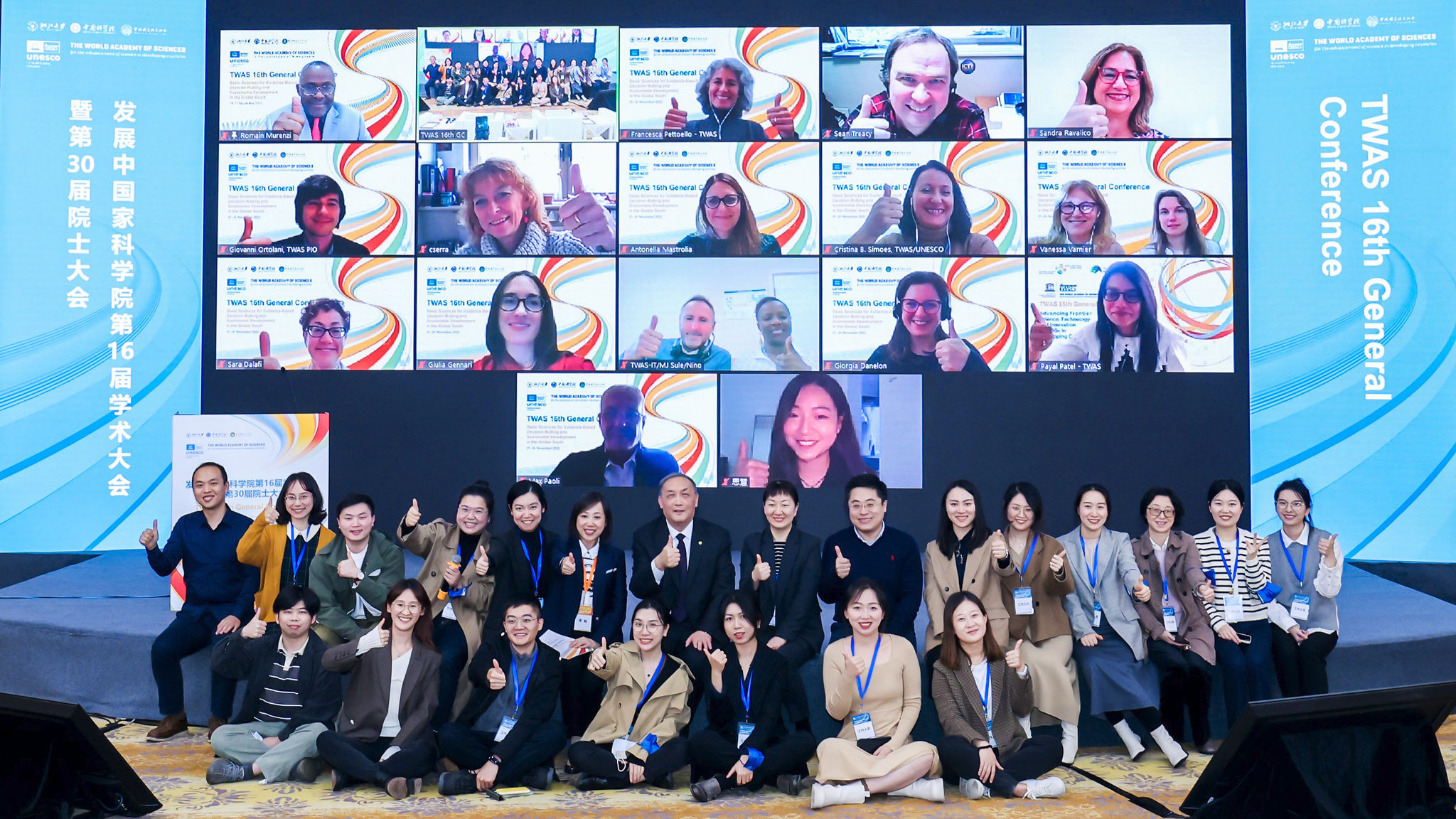 Hundreds of developing world scientists gathered at TWAS 16th General ConferenceHundreds of scientists — including TWAS Fellows, TWAS Young Affiliates and Alumni, ministers of science and technology, and dignitaries from all over the world — met online on 21 November 2022 for the inaugural day of the TWAS 16th General Conference. TWAS General Conferences are showcases for scientific excellence in the developing world, and highlight the importance of scientific research to human prosperity. The theme of the 16th General Conference was 'Basic sciences for evidence-based decision-making and sustainable development in the global South', complimenting the momentum created by the International Year of Basic Sciences for Sustainable Development, a key moment for global mobilization on a priority of great importance to TWAS. The event normally brings its attendees together physically to the host country. But for the second time, the Academy’s capstone event was held almost entirely online to account for the ongoing COVID-19 pandemic, making it safer and simpler for many participants across the globe to take part in the event simultaneously across the world. |
|
|
|
|
|
|
|
|
|
 Hangzhou Declaration of TWAS 16th General ConferenceIn light of the COVID-19 pandemic, the 16th General Conference of TWAS took place from 21 to 24 November 2022 online. The General Conference was hosted by Zhejiang University, Hangzhou, China, in collaboration with the Chinese Academy of Sciences (CAS) and the China Association for Science and Technology (CAST). |
|
|
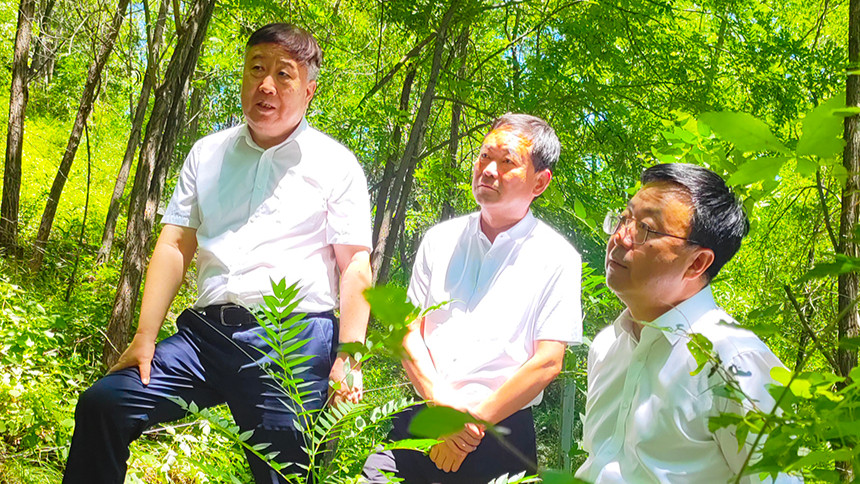 The science of balancing nature and civilizationThe UN Sustainable Development Goals (SDGs) set ambitious targets for all the world’s nations to strive for, so that humankind might hope to prosper, sustainably, and equitably. But how do nations meet them while also respecting the delicate balance between human civilization and the resource-providing bounty of nature? |
|
|
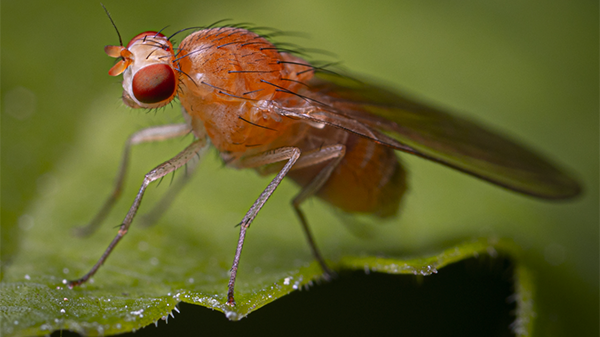 Discover nature’s powerful clocksThere is much that we can learn from the mind of a simple fruit fly, and research on the tiny creatures has already facilitated progress in our understanding of the biological, internal clocks that govern so much of our lives, said Michael Rosbash, a keynote speaker at the TWAS 16th General Conference on 21 November 2022. |
|
|
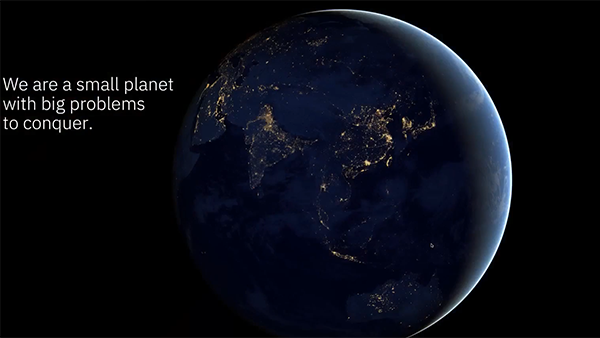 Small planet, big challenges and big lessonsScience and computing can help humanity achieve a sustainable future. This is the key message Solomon Assefa delivered on 21 November 2022, as a keynote speaker at the TWAS 16th General Conference. |
|
|
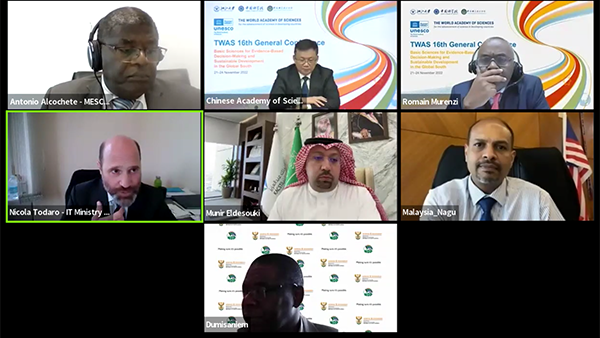 Ministers join TWAS to advocate for basic scienceBasic sciences are the beating heart of the search for knowledge: without it, many of the key discoveries that paved the way for applied research and transformative technologies may never have happened. And with the numerous, global challenges facing the world today, basic research is more vital than ever. |
|
|
|
|
|
|
|
|
|
|
|
|
|
|
IN MEMORIAM |
|
|
|
|
Support TWASA donation contributes to the advancement of science, |
|
|
The World Academy of Sciences for the advancement of science in developing countries (TWAS) works to support sustainable prosperity through research, education, policy and diplomacy.TWAS was founded in 1983 by a distinguished group of scientists from the global South and global North, under the leadership of Abdus Salam, the Pakistani physicist and Nobel laureate. Today, TWAS has more than 1,300 elected Fellows representing over 100 countries; 12 of them are Nobel laureates. It is based in Trieste, Italy, on the campus of the Abdus Salam International Centre for Theoretical Physics (ICTP). Through almost four decades, the Academy’s mission has remained consistent, namely to:
With its partners, it has graduated over 1,000 PhDs and offered hundreds of postdoctoral fellowships to developing world scientists. The Academy also hosts prestigious scientific awards in the global South, has offered numerous research grants, and supports exchange visits for scientists. TWAS hosts and works in association with two organizations, also hosted on the ICTP campus: the Organization for Women in Science for the Developing World (OWSD) and the InterAcademy Partnership (IAP). At its founding in 1989, OWSD was the first international forum uniting women scientists from the developing and developed worlds. Today, the organization has more than 8,200 members. Their objective is to strengthen the role of women in the development process and promote their representation in scientific and technological leadership. IAP represents more than 140 national and regional science and medical academies worldwide. It provides high-quality analysis and advice on science, health and development to national and international policymakers and the public; supports programmes on scientific capacity-building, education and communication; leads efforts to expand international science cooperation; and promotes the involvement of women and young scientists in all its activities. TWAS, a programme unit of UNESCO, receives its core funding from the Italian Ministry of Foreign Affairs and International Cooperation. |
|
|
|
TWAS NEWSLETTER Produced quarterly by The World Academy of Sciences for the advancement of science in developing countries (TWAS) Strada Costiera 11, 34151, Trieste, Italy e-mail: info@twas.org | website: www.twas.org TWAS Council: https://twas.org/council TWAS Executive Director: Romain Murenzi TWAS Public Information Unit: https://twas.org/press-room |
|
|